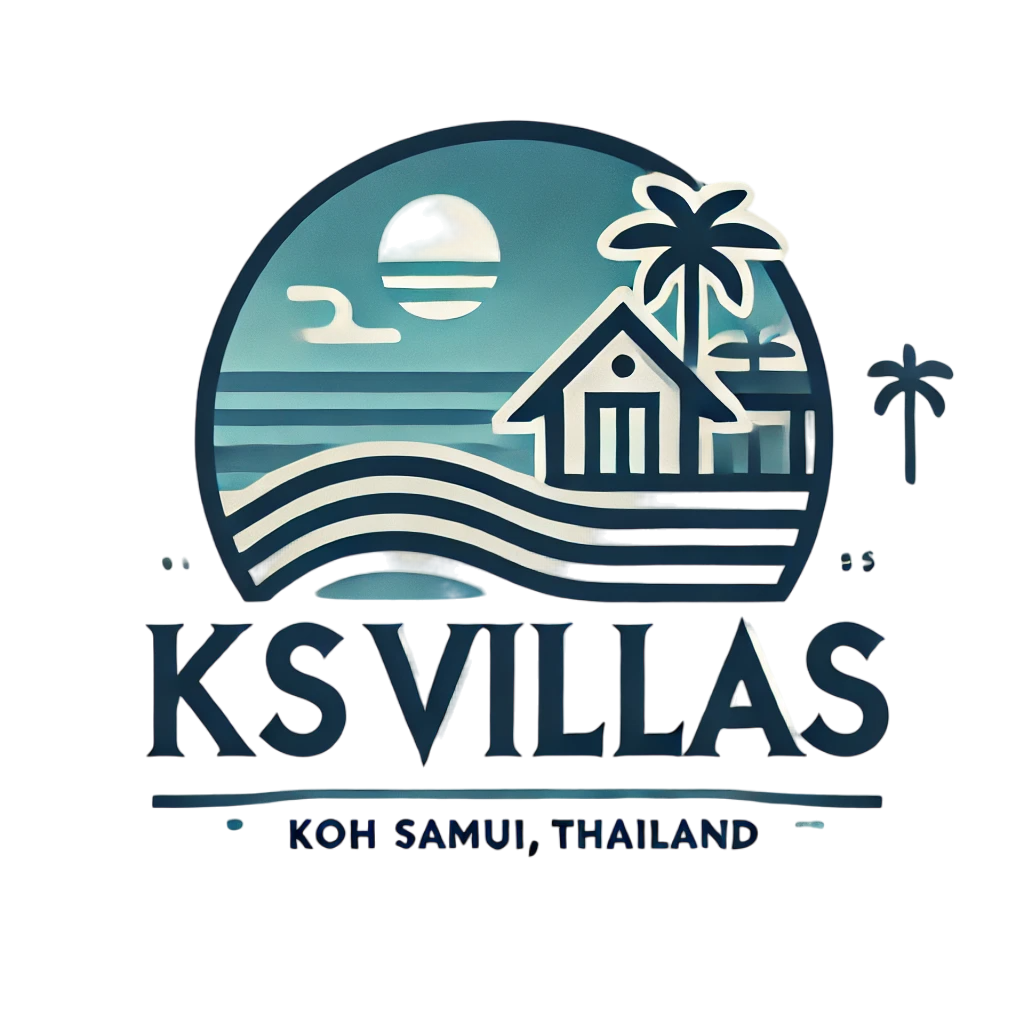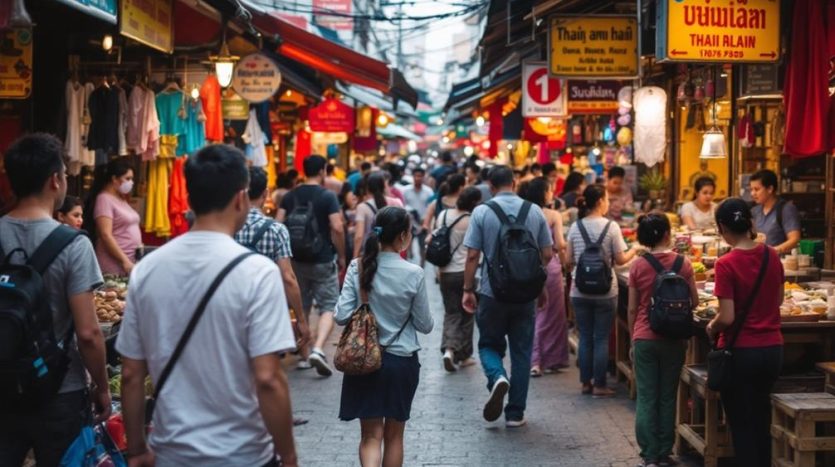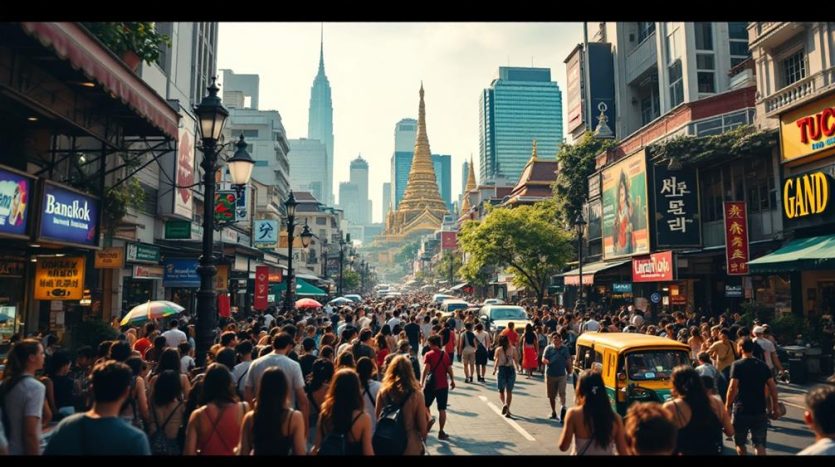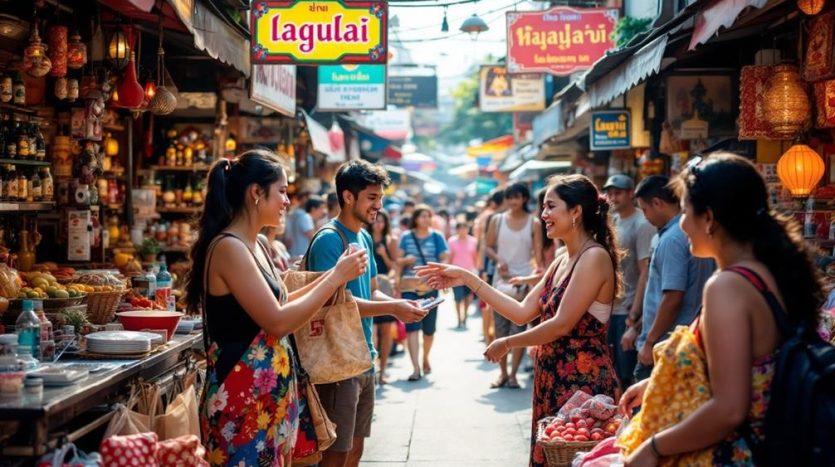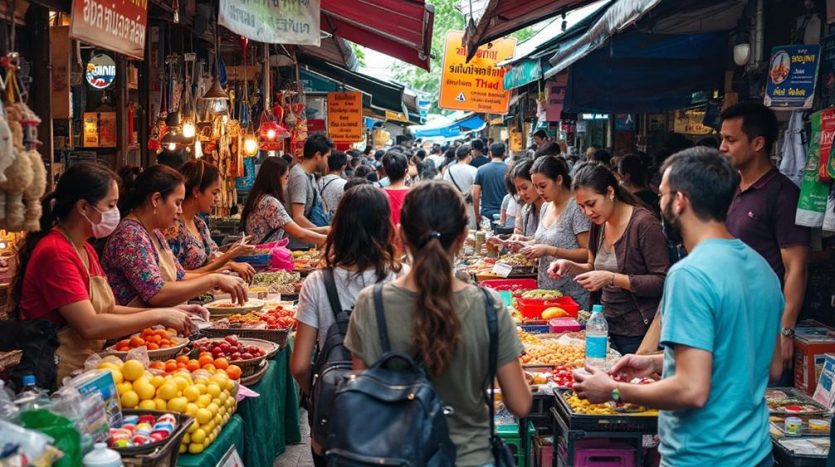Do People Speak English in Thailand?
You might not know that while English is part of the school curriculum in Thailand, its fluency among the population can be quite uneven. In bustling cities like Bangkok and popular tourist spots, you'll find that many people speak English, especially professionals and those in the service industry. However, when you venture into more rural areas, English proficiency drops considerably, and local dialects take over. So, how does this impact your travel plans and interactions in Thailand? Let's explore how you can navigate these language differences effectively.
Key Takeaways
- English is widely spoken in tourist areas like Bangkok, Phuket, and Chiang Mai.
- Many professionals in Bangkok have high English proficiency.
- English education is integrated into school curriculums from an early age.
- In rural areas, English speakers are rare, but locals are friendly and helpful.
- Basic English and translation apps are useful for communication in Thailand.
English in Tourist Areas
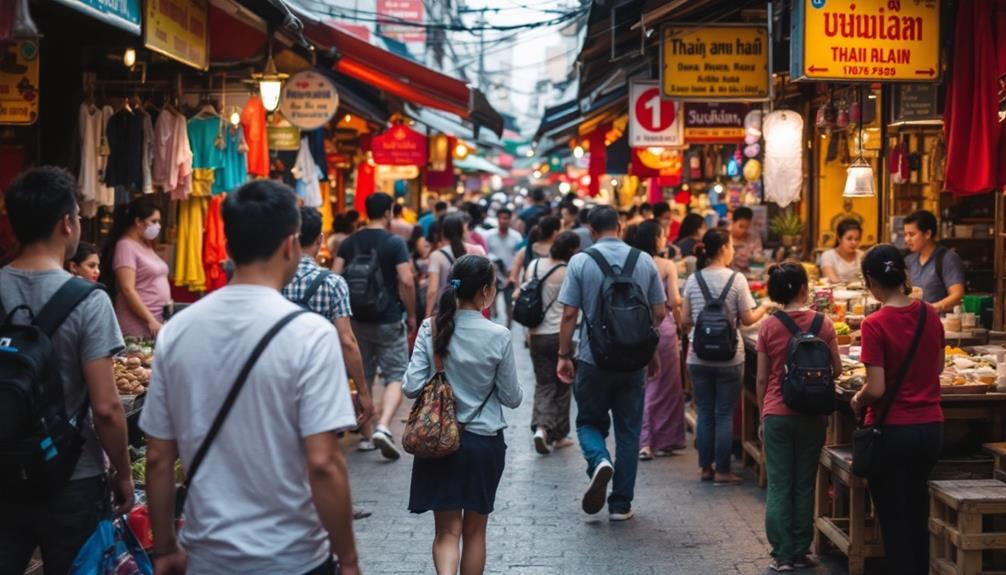
In bustling tourist areas like Bangkok, Phuket, and Chiang Mai, English serves as a bridge connecting travelers from diverse backgrounds with the vibrant culture of Thailand. You'll find English signage everywhere, from street vendors selling mouthwatering pad thai to the luxurious massage parlors promising to knead away your jet-lagged woes. It's like a treasure map, guiding you through a maze of tuk-tuks and temples.
Even affordable healthcare facilities in these areas often have staff who can communicate in English, catering to the needs of international visitors seeking medical services.
As you navigate these vibrant streets, tourist interactions become an amusing blend of smiles, gestures, and, occasionally, charades. Shopkeepers, taxi drivers, and even street performers often have just enough English to make a sale or crack a joke. You'll find that English is the universal language of bargaining – a skill you'll need to haggle for that perfect souvenir or a ride to the next must-see spot.
But don't expect everyone to speak English fluently. Be prepared for moments where you might need to rely on your trusty translation app or practice your best mime skills. Embrace the linguistic adventure; after all, it's these quirky exchanges that make your travel experiences memorable and Instagram-worthy.
Just remember, when in doubt, smile – it's the same in every language!
English Education in Schools
Here's how Thailand is tackling English education:
1. Curriculum Focus: Schools integrate English into the curriculum from a young age, making sure that students don't just learn it, but live it.
Think of it as the language version of a high-protein diet. This approach is similar to how diverse options in rental properties cater to various lifestyles and budgets, providing flexibility in learning styles.
2. Teacher Qualifications: The Ministry of Education is keen on employing teachers with strong English skills.
They've realized that your English teacher shouldn't be learning "the cat is on the table" alongside you. A knowledgeable teacher is as essential as having a reliable real estate agent to help navigate cultural differences.
3. Interactive Learning: Classrooms are becoming more engaging with activities that make students say more than just "Yes" or "No."
4. Technology Integration: Schools are using digital tools to bring English lessons to life.
Who knew that smartphones would help you master the art of ordering a cheeseburger in English?
English in Major Cities

As students in Thailand immerse themselves in English at school, this linguistic journey continues beyond the classroom, particularly in the bustling streets of major cities. Picture yourself in Bangkok, where tuk-tuks weave through traffic like caffeinated ants and street vendors charm you into buying yet another pair of elephant pants. Here, English is not just a language; it's a tool for business communication. Thai professionals use English to connect with international clients, navigate cultural nuances, and sometimes, to order that essential iced coffee without a hitch.
In other major cities like Chiang Mai and Phuket, you'll find English sprinkled throughout, from menus to markets. Don't be surprised if a local greets you with a cheerful "Hello!" followed by a fascinating blend of Thai and English, or "Tinglish," as some might call it.
| City | English Prevalence | Quirky Tidbit |
|---|---|---|
| Bangkok | High | Tuk-tuk drivers mastering "short cut" |
| Chiang Mai | Moderate | "Hello" echoes in night bazaars |
| Phuket | Moderate to High | Beach vendors hawking "cheap drinks" |
Language Skills in Rural Areas
Venture beyond Thailand's bustling cities, and you'll discover a different linguistic landscape in its rural areas. Here, English speakers are rarer than a snowstorm in Bangkok, and you'll find that rural dialects take center stage.
It's like stepping into a live episode of a foreign language game show, where your ears get a workout trying to decipher the local lingo. But fear not, intrepid traveler! This unique linguistic journey is part of the adventure.
Additionally, exploring these rural regions can be an affordable experience, as rural properties in Thailand cost between 1-3 million baht, making it ideal for those seeking an authentic cultural immersion without breaking the bank.
Here's what you might encounter:
- Rural Dialects: Each region boasts its own dialect, so don't be surprised when the locals throw in words you've never heard before. It's like revealing a whole new level of language learning!
- Local Interactions: You'll find that a smile, nod, or thumbs up can work wonders. After all, enthusiasm is the universal language.
- Limited English: English proficiency can be limited, but locals are generally friendly and keen to help, even if it means charades.
- Cultural Richness: This is your chance to dive headfirst into authentic Thai culture, where language barriers become bridges to memorable experiences.
Tips for Communicating in Thailand
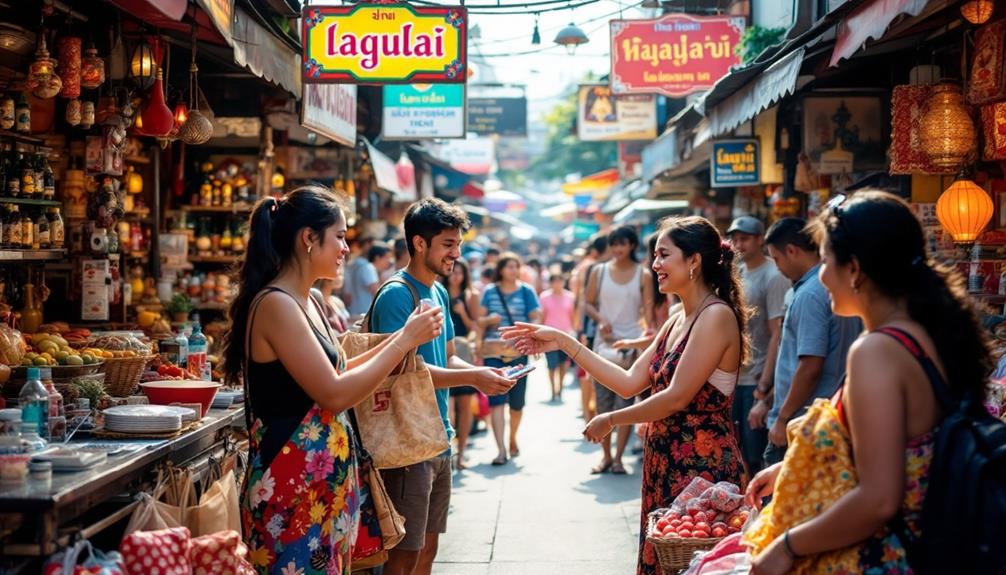
Stepping away from the linguistic tapestry of rural Thailand, let's focus on traversing communication across the country. It's like trying to dance with two left feet—challenging but possible! Embrace the cultural nuances and arm yourself with basic phrases, and you'll have Thais applauding your effort like you've just won a local karaoke contest.
First, a table of must-know phrases that'll save you from awkward charades:
| English | Thai (Phonetic) |
|---|---|
| Hello | Sawadee (krub/ka) |
| Thank you | Khob khun (krub/ka) |
| How much? | Nee tao-rai? |
Navigating these cultural nuances is as essential as not mixing up your "krub" and "ka"—you don't want to sound like you're addressing your grandma as a dude! Thais appreciate when you sprinkle in local lingo, even if you sound like a toddler with a thesaurus.
A smile can go a long way in communication, serving as a universal language that can bring people closer and resolve conflicts. And in times of uncertainty, there’s always technology like Google Translate to assist when language barriers arise. However, it’s important to use such tools sparingly, as they can sometimes mistranslate words and phrases. So, remember to rely on your smile first and foremost, and use technology as a backup only when needed.
